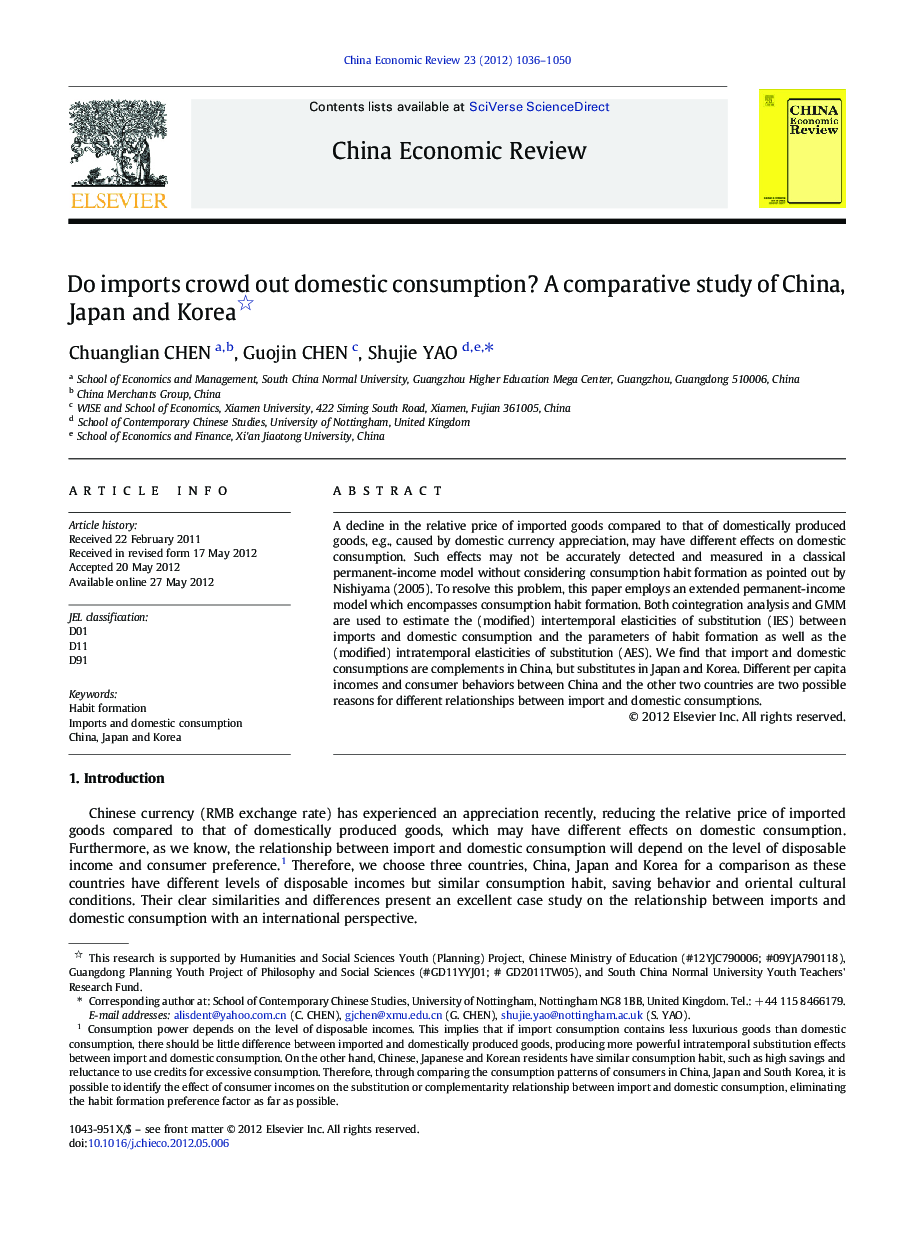| Article ID | Journal | Published Year | Pages | File Type |
|---|---|---|---|---|
| 5047753 | China Economic Review | 2012 | 15 Pages |
A decline in the relative price of imported goods compared to that of domestically produced goods, e.g., caused by domestic currency appreciation, may have different effects on domestic consumption. Such effects may not be accurately detected and measured in a classical permanent-income model without considering consumption habit formation as pointed out by Nishiyama (2005). To resolve this problem, this paper employs an extended permanent-income model which encompasses consumption habit formation. Both cointegration analysis and GMM are used to estimate the (modified) intertemporal elasticities of substitution (IES) between imports and domestic consumption and the parameters of habit formation as well as the (modified) intratemporal elasticities of substitution (AES). We find that import and domestic consumptions are complements in China, but substitutes in Japan and Korea. Different per capita incomes and consumer behaviors between China and the other two countries are two possible reasons for different relationships between import and domestic consumptions.
